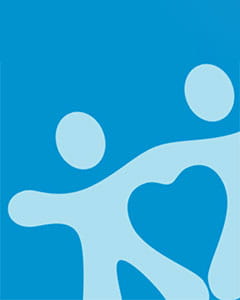Setting an example for young athletes: Rob Valentino’s story
Last month, many were shocked to hear of the death of a 16-year old high school student from New York who sustained a traumatic brain injury (TBI) while playing on his school’s football team. While it may serve as an extreme example of what can happen, this tragic story highlights the importance of education, awareness and treatment in preventing TBI deaths, particularly among young athletes.
Approximately 1.7 million traumatic brain injuries occur in the United States every year, with concussions accounting for roughly 75% of them. A concussion is a type of TBI caused by any form of injury, such as a jolt to the head or a fall, which jars the brain inside the skull. Concussions do not necessarily lead to a loss of consciousness, and can include a wide range of side effects including headache, memory problems, nausea/vomiting, double or fuzzy vision, ringing in the ears and more.
In 2012, to emphasize the importance of proper concussion treatment, Florida passed a Youth Concussion Law stating that parents must sign a concussion information form before their child can participate in school sports. Additionally, the law states that student athletes are required to be immediately removed from play if suspected of a concussion, and concussed student athletes must obtain medical clearance before returning to play.
Of course forcing an adrenaline-filled student athlete to sit on the sidelines when a concussion is present is challenging, but vital and potentially life saving. Just ask Rob Valentino, defender, Orlando City Soccer Lions. He’s been in that situation before and understands how hard it can be to put your health first when a game is on the line.
“When Dr. Albright took me out of the game, I wasn’t happy,” he laughs. “I wasn’t thinking clearly because of the injury and also the emotions I was feeling being in a playoff game. Looking back, I’m glad he was there and I know that he did it for my own safety.”
Last year, Rob suffered a concussion during an important playoff game and was forced out of play for health reasons. Dr. Jay Albright, former orthopedic surgeon for both the Arnold Palmer Hospital and Orlando Health Sports Medicine programs, treated Rob on and off the field.
“I went up for a header and I don’t remember anything after that,” Rob says of receiving the injury. “The next thing I remember is being on the ground and the trainer already being at my feet. I also remember having a terrible, terrible ringing in my head near both of my temples.”
Rob was prohibited from engaging in physical activity for four weeks after his concussion. Though not experiencing a tremendous amount of pain, he did have ongoing headaches and was encouraged to avoid things like texting or playing video games that might place too much strain on him. He was given an impact test, which is a series of questions designed to measure memory and focus, and once his results were back to normal, he was able to engage in activity again. In hindsight, Rob is grateful that he followed his doctor’s advice because he avoided potentially worse complications.
Though sidelined during the playoffs last year, Rob was able to play through until the very last game this year, becoming a 2013 USL PRO champion with the rest of the Lions. Even in playoffs with the game on the line, Rob still understands one thing for sure: your brain is what’s most important.
“Your brain isn’t something to mess with,” he says, offering advice to young athletes. “Bones heal if you break them. Muscles heal if you tear them. But your brain is different. It can be frustrating because everyone heals differently and there’s no timetable for recovery when it comes to your brain. You just have to be patient and trust that everything will be okay in the long run.”
If your child is exhibiting any signs of a concussion, it is important to seek professional help immediately.
At Arnold Palmer Hospital, we know the importance of providing quality care for children and adolescents with concussions. That’s why our Sports Medicine team offers a Comprehensive Concussion Program including pediatricians, orthopedic surgeons and sports medicine specialists, as well as access to rehabilitation and vestibular therapists, neuropsychologists, neurologists, neurosurgeons and athletic trainers. This multidisciplinary approach to treatment allows us to quickly evaluate and diagnose every child we see to provide the most effective treatment plan available.
“Concussions can affect anyone of any age, from professional athletes like Rob to kids playing on the playground at school,” says Dr. Elizabeth Davis, Sports Medicine physician. “What is most important is that a brain injury is recognized sooner rather than later. The more quickly a concussion can be identified and treated, the sooner that child or athlete can return to their activities.”







